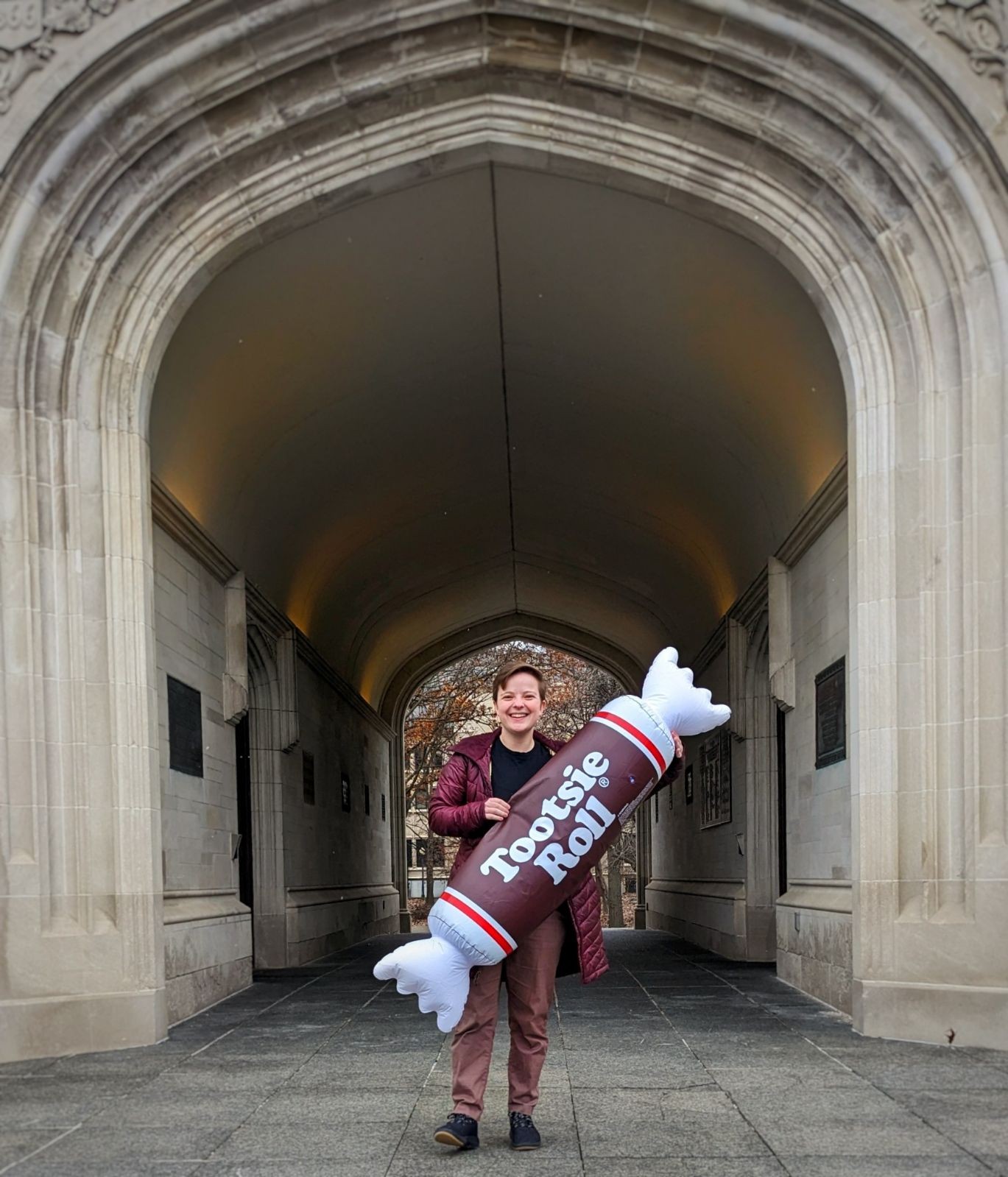
Bri Becerra
Editor-in-Chief
Editor-in-chief Bri Becerra ’25 sat down with Quentin Kitchell ’25 to discuss their early I.S. submission.
Please introduce yourself.
“My name is Quentin Kitchell. I’m part of the Class of 2025 but I’m graduating a little bit strangely. I am a sociology [and] history double major who did my I.S. just in history. I use they/them pronouns.”
Can you give a rundown of what your I.S. topic is?
“My I.S. is the evolution of inclusion in public libraries, so I basically looked at how libraries started in the early 1900s as super paternalistic, really racist, really narrow focused, and how they got to be now where they’re bastions of liberal democracy. With that, I got to look at policy changes and how that happened. I think that’s especially important to look at because there aren’t a lot of holistic histories of libraries. There’s a lot of branch histories, but there’s not a lot of big picture stuff. And libraries are currently under attack, so this was a very good way to identify that you can do legal change [and] you can do public change like this. [My research explored] what exactly this means and how we protect [libraries].”
Are you comfortable sharing why you finished your I.S. so early?
“Totally. It’s weird but not embarrassing. I have been sick through most of my life, but definitely all of college, so in the time I’ve been in college, I’ve seen about 20 doctors. I had a couple of surgeries, had a ton of stuff happen, and the entire time we’ve had no idea what was wrong with me, which is inconvenient. I basically just kept going to school because I didn’t know what else to do, and I really like school. About a week before the start of this semester, I was diagnosed with hypermobile Ehler-Danlos syndrome, which was not a surprise, and mast cell activation syndrome, which was a surprise. That means I need IV infusions and lots of drugs and I can only eat about 12 foods, and it became very apparent that it was going to be very inconvenient to be in a different state than where my doctors are. I’m from Indiana, very close by, but a very problematic four hour distance. I figured [that since] I had my credits, I could finish I.S. that quickly and I managed to do so, and it worked and now I can go get healthcare.”
Do you have any tips for people who are trying to finish I.S. or even working on Junior I.S.?
“Yes, [it’s] a ton of ‘do what works for you’ because I was given a ton of advice like blocking, never doing anything outside of [certain] hours, like being super specific [with time]. I live and die by my color-coded calendar, but it changes about a dozen times a week because I very frequently would be like, ‘oh, I’m going to do this.’ Sometimes I’d work super early in the morning because I felt super energized. Sometimes I’d work at night. I would say the biggest general piece of advice outside of that would be to pick something that you really like and just kind of want to dig into independently. A large part of why I could finish early at all was [because] I did way too much on my Junior I.S. I would just kind of dig into it and find things [that I found] interesting. That makes the process way easier and way more satisfying. If you really don’t like your topic and you get bored of it, that makes it way harder to slog through the rest of the process.”
What is one or a couple of things that you’re going to miss the most next semester?
“I am really sad to not be here generally, because I’ve loved it here. My favorite part of the college experience has been going to class because I’m just kind of like that. If I can, I might try to come back for [I.S.] Symposium because I’ve loved Symposium, and every year [I’ve] been like, ‘I’m going to do that one day.’ But I will be back for graduation. I’m going to miss the classes and I’m going to miss just seeing people and talking. That’s been one of my favorite things, running into people with especially very weird niches of personal knowledge, [and] that’s probably what I’m the most excited for and hoping to find in grad school eventually.”
Do you know what your plans are for graduate school yet?
“Yes, I will do one semester at IU Indy, because by the time we figured this [early graduation] out, the [application] deadline had passed. And then I will be at IU Bloomington getting my masters in librarian information science to be a librarian, then I’m planning to get a second masters that is in the history and philosophy of medicine and science with the aim specifically of being a medical librarian. I’m someone who’s really [benefited] from research studies and I’ve been in like three of them now, and I’d like to be able to help with that. I’ve involuntarily been given a pretty large medical tool kit [with my own experiences].”
Do you have anything else you would like to add about your time at Wooster?
“I’d love to thank Dr. Welsch, Dr. Tierney, Dr. Adams, and Dr. Haley. They’ve been some of the biggest influences on my time in Wooster, Dr. Tierney in particular before he left…he [said] I would be a phenomenal librarian and got me connected to an alum who he was like, ‘you would love this person.’ That’s been super helpful. I’ve loved my time here and I kind of came here a little by accident because of COVID year admissions and stuff, and I didn’t really know what to expect. I have absolutely loved it.”
